So the mobile era is here—today, the number of mobile users is greater than the number of desktop users!
Consequently, businesses have realized the need to attract customers by effectively using mobile channels. But that’s not enough. They also need to optimize their mobile apps and websites to improve user experience and outdo their conversion rates to make the most of this channel.
While some businesses employ both mobile websites and apps, other companies might choose one of the two. The choice between mobile apps and websites depends on their cost, usability, required features, and the audience they serve.
That said, studies show that users prefer mobile apps more than mobile websites. This makes for a solid reason to create mobile apps to reach out to potential (and existing) customers.
10 Key Advantages
In addition, various other reasons make mobile apps better than mobile websites. Following is our list of the top 10:
1. Mobile apps offer better personalization
Personalization aims to offer tailored communication to users based on their interests, location, usage behavior, and more.
With mobile apps, it’s easy to treat users with a personalized experience. Using a mobile app A/B testing tool, you can also test out different experiences for your customers.
Mobile apps can let users set up their preferences at the start, based on which users can get served with customized content. Apps can also track customer engagement and then utilize it to offer custom recommendations and updates to the users. Furthermore, they can also identify the location of the users in real-time to provide geography-specific content.
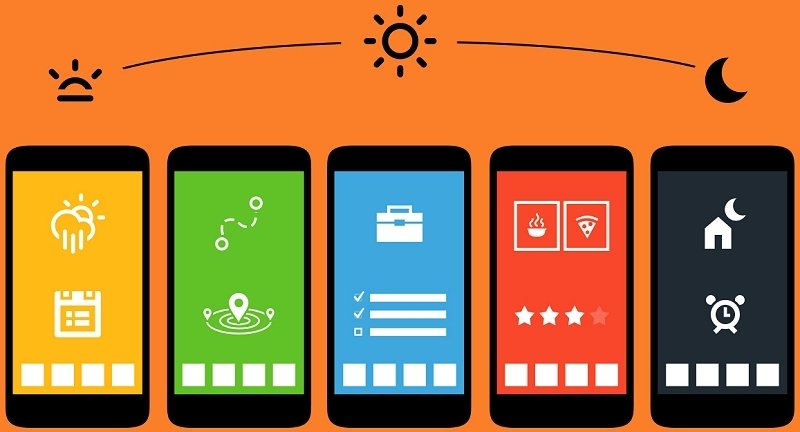
However, improving user experience is not the only purpose that personalization serves. It can also help improve the conversion rate of apps.
When users get pampered with personalized content, they have a higher chance of converting as it offers a human touch—as opposed to generic content that seems rather robotic or automated.
2. Ease of sending notifications
For the last couple of decades, email has been the most widely used business communication tool. Businesses have extensively used email (some almost abused it) to reach out to their users. As a result, email has lost the effectiveness it once had; its open rates and click rates have constantly dropped.
Well, there’s no reason to worry.
Enter mobile app notifications. These notifications are of two types: push and in-app. Both are exciting alternatives for communicating with app users in a far less intrusive manner.
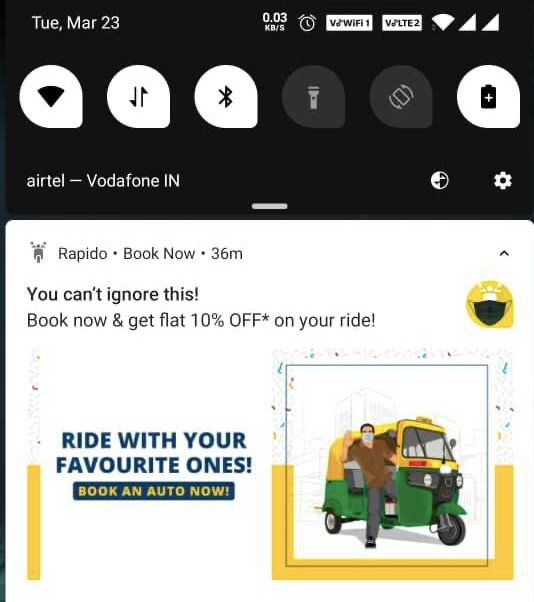
The ability to send instant, non-intrusive notifications to users is so desirable that it is one of the key reasons why many businesses want to have a mobile app in the first place.
In-app notifications are the notifications that users can only receive when they have opened an app. On the other hand, push notifications are those notifications that users can receive regardless of any activity they are doing on their mobile devices.
There have been instances where the push medium of notifications has delivered click-through rates of 40%. If you choose a mobile website or have one while building an app, you can send your push notifications with VWO Engage.
Sign up for a free trial and see how easy it is to send notifications to both your desktop and mobile users.

3. Making use of mobile device features
Mobile apps have the advantage of utilizing features of a mobile device like a camera, contact list, GPS, phone calls, accelerometer, compass, etc.

Such device features, when used within an app, can make the user experience interactive and fun.
Moreover, these features can also reduce the efforts users would have to make otherwise. For instance, users completing a form on a banking app might need to submit their photographs to complete the process. The app can enable users to use their mobile camera to capture and submit photographs.
The interrelated features significantly shorten the time taken to perform a particular task in an app and boost conversions.
Note: Mobile websites can also use some mobile features like the camera, GPS, etc. Still, there are technological constraints and privacy concerns in utilizing multimedia features of a device (which mobile apps can use).
Download Free: Mobile App A/B Testing Guide
4. Ability to work offline
It is probably the most fundamental difference between a mobile website and an app.
Like a website, apps too might require internet connectivity to perform most tasks, but here’s the difference: an app can still offer basic content and functionality to users in offline mode.
Let’s take the example of a banking app again.
The app can provide features like tax calculation, installment calculation, and determination of loan limits. These features can work even without the help of an internet connection.
Note: Even though mobile websites can use caching to load web pages without an internet connection, they can only offer limited functions.
5. Freedom in designing
With all the technological advancements in web designing, mobile websites still have to rely on browsers to perform even the most elementary functions. Mobile websites depend on browser features like ‘back button,’ ‘refresh button,’ and ‘address bar’ to work.
Mobile apps, however, don’t have any of these restrictions.
A mobile app gets designed with several elaborate functions based on advanced gestures like ‘tap,’ ‘swipe,’ ‘drag,’ ‘pinch,’ ‘hold,’ and more.
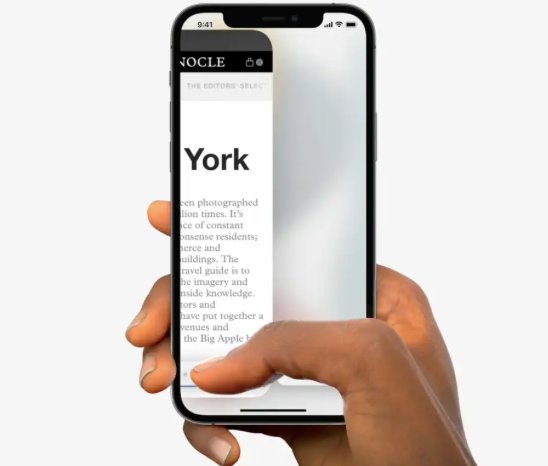
Apps can use these gestures to offer innovative functionality that can help users perform a task better. For example, an app can let users move to the next or previous step using the swipe gesture.
6. New branding experience
Since a mobile app is distinct from a company’s website, it has the liberty of offering a new brand experience to users. It means that the company can experiment with new branding styles for the app, which can be different from the regular brand style of the company’s website (or the company altogether).
Going a step further, companies can build mobile apps specifically to transition into a new brand style for themselves.
Additionally, a mobile app can also allow users to customize its appearance, as per users’ liking. This can further help on the personalization front of the app.
Note: The concept of microsites works on similar lines. Microsites offer distinct brand experiences to users, as compared to their parent sites. They are often used to promote a sub-brand, an event, or a newly-launched service.
7. Users spend more time on Apps
Mobile users spend 88% of their time on mobile apps and just 12% of their time on mobile websites.
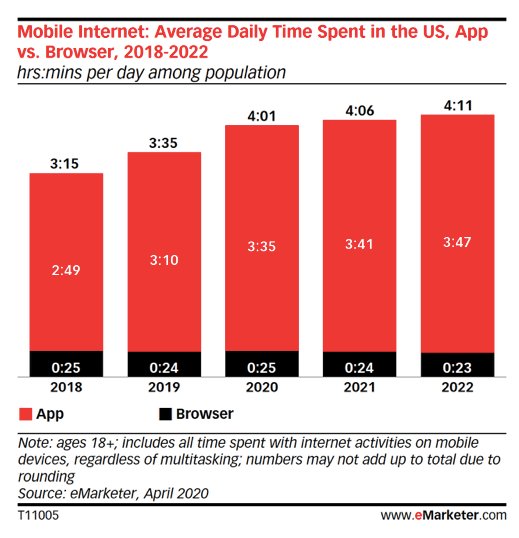
Note: A point to consider here is that users spend the majority of their time on gaming apps and social media apps.
8. New stream of conversions
If you intend to increase conversions, then mobile apps can provide an easy way to push users down the conversion funnel.
Mobile apps can be used to acquire both top-of-the-funnel (ToFu) and bottom-of-the-funnel (BoFu) users.
For instance, utility apps can bring in ToFu users that can be later nurtured into BoFu leads. On the other hand, apps like eCommerce already have BoFu users, who have a higher possibility of converting.
Add-on: Since mobile apps are much more targeted in nature (through their content and utility), you can use them to tap specific users in the funnel. Mobile websites, in contrast, reach out to a diverse set of audiences.
9. Brand presence
Users spend a substantial amount of their time on mobile devices. It’s safe to say that many users encounter the apps they’ve installed on their devices almost every day. This regular encounter acts as a branding opportunity for the apps.
Even when users are not actively using a mobile app, they get reminded of the brand associated with the app. The icon of the app acts like a mini-advertisement for the brand.
The presence of an app on any device helps subconsciously influence the user’s perception of that brand.
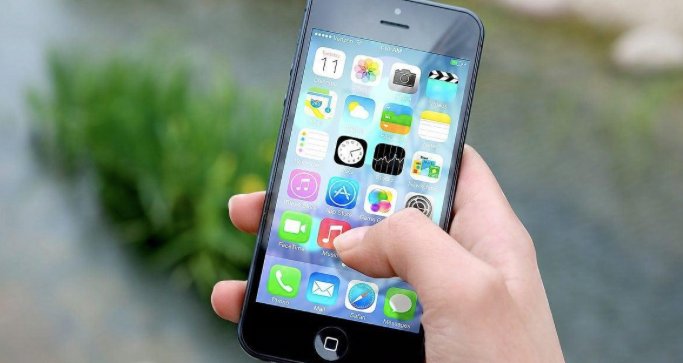
This user behavior takes inspiration from the Signal Detection Theory, which suggests that users process even those ads earlier ignored at some level in their minds.
10. Apps can work faster than websites
A well-designed mobile app can perform actions much quicker than a mobile website.
Apps usually store their data locally on mobile devices, unlike websites that generally use web servers. For this reason, data retrieval happens swiftly in mobile apps.
Apps can further save users’ time by storing their preferences and taking proactive actions on users’ behalf.
There is also a technical justification as to why mobile apps can work faster—Mobile websites use javascript code to perform most of their functions, and the framework that mobile apps use can run almost five times faster than a javascript code! While all this happens in the background, users get to complete actions quicker on the front end of mobile apps, again contributing to a delightful user experience.
Mobile app v/s mobile site—what should you choose?
Developing both a mobile website and mobile app for your business can prove to be a costly affair, and you may have to choose one of the two channels based on your budget and business goals. While both channels have their own pros and cons, mobile apps can help you get higher conversions and retention. Mobile apps offer greater personalization and operational efficiency, along with multiple other exclusive features.
However, once you’ve designed a slick mobile app, how do you ensure it also delivers on all its promises and drives the intended growth for your business instead of becoming just another channel that you have to manage and maintain? Well, the answer is simple—you test it rigorously.
Mobile app A/B testing allows you to steadily enhance your in-app user experience by experimenting with features, app flows, and other UI-based changes to improve your engagement, conversion, and retention rate. Therefore, while having an up-and-running mobile app is the first step towards engaging with a whole new audience segment, continuously optimizing it will help you drive tangible improvements in your key business metrics. If you’re unsure, request a free demo by one of VWO’s experimentation experts to understand how you can leverage VWO Mobile App Testing to improve your app’s key metrics.
Use VWO’s Mobile App Testing to build engaging experiences that delight users and launch world-class features by mitigating any risk.
Also, get a quick overview of VWO’s mobile app experimentation.
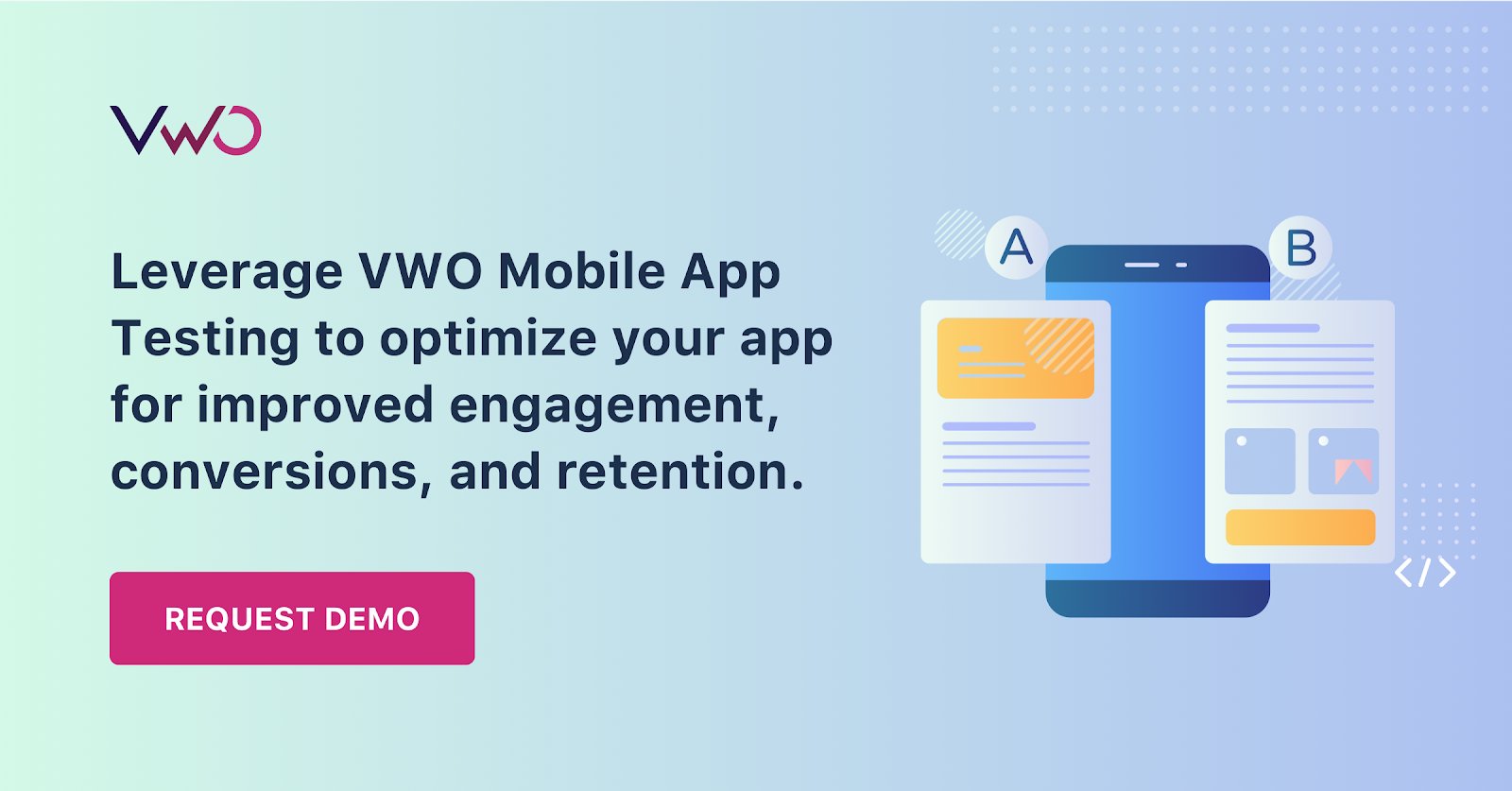
FAQs on Apps v/s Websites
Mobile apps can work offline. Although apps too might require internet connectivity to perform tasks, they can still offer basic content and functionality to users in offline mode.
Apps usually store their data locally on mobile devices, unlike websites that generally use web servers. For this reason, data retrieval happens swiftly in mobile apps.
(Disclaimer: This post does not intend to establish mobile apps as a better alternative to mobile websites. It only lists out areas where apps can offer better value to businesses than mobile websites.)






















